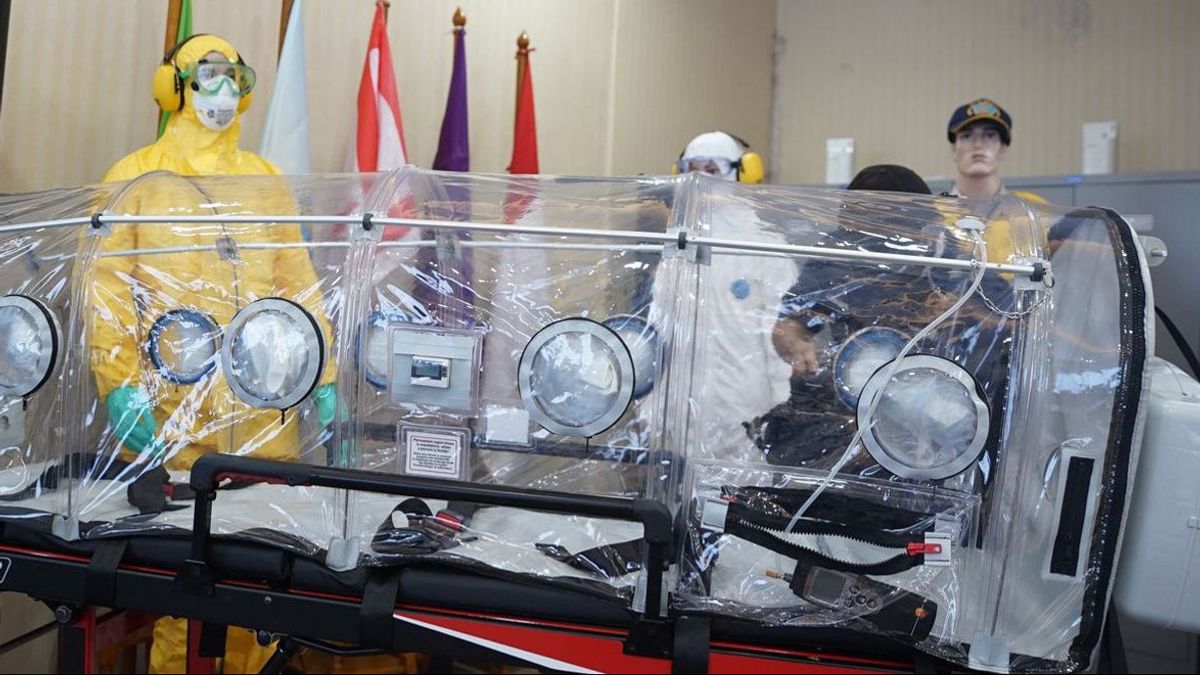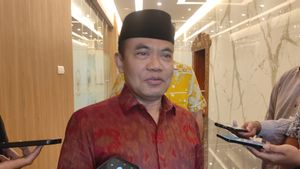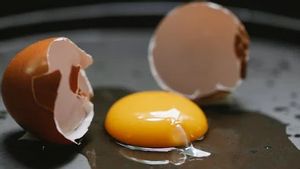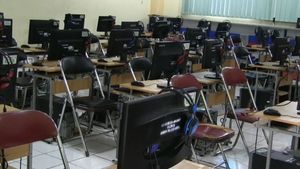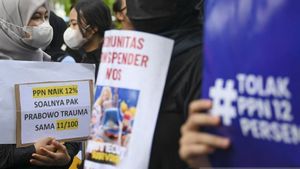JAKARTA - The Ministry of Industry is focused on encouraging the optimization of the productivity of the personal protective equipment (PPE) industry as an effort to deal with the domestic corona virus or COVID-19 pandemic. The need for PPE in the domestic market is increasing, especially to meet the demand for medical personnel, given the increasing number of people suffering from diseases caused by the virus.
"PPE producers are calculating their production capability for the next 6-8 months. This calculation will be adjusted to the distribution schedule for each user, such as hospitals that are in dire need," said the Ministry of Industry's Director General of Chemical, Pharmaceutical and Textile Industry (IKFT), Muhammad. Khayam in Jakarta, Tuesday 31 March.
Khayam said, under normal conditions or when there was no COVID-19 outbreak, the PPE industry in the country produced 1 million units per month.
"However, in the current condition, the need for PPE will continue to increase. Therefore, we also encourage textile industry players to play a role in producing PPE," he said.
The Ministry of Industry gave appreciation to the textile industry players in the country who participated. This is expected to boost the performance of the domestic textile industry amid pressures from global economic conditions.
"With the involvement of the textile industry, our PPE production capacity can reach more than 17 million units per month. We project that by May 2020, domestic PPE needs will be around 3-5 million units," he explained.
Currently, Indonesia has 28 PPE producers with a total production capacity of up to 17.8 million units per month. Of the 28 PPE producers, five companies are boosting their production, while the rest are in preparation and are targeted to start early April 2020.
"We are optimistic that PPE production can be produced quickly, because the raw material needs are already available. By the end of April 2020, it is estimated that 5-10 million PPE can be distributed," he added.
PPE that is needed includes clothing, headgear, masks, towels, gloves, foot protection, hand protection and goggles. In an effort to supply the PPE needs, the Ministry of Industry continues to coordinate with the National Disaster Management Agency (BNPB) and the Ministry of Health.
Product Diversification
Director of the Textile, Leather and Footwear Industry of the Ministry of Industry, Elis Masitoh, explained that the increase in PPE production in the country came from a number of existing companies that diversified their products, including in the textile industry sector.
"We hope that this manufacturer will be able to meet the production of 16-17 million units of PPE per month and for medical clothes or surgical gowns of 508,800 packages per month," he said.
Furthermore, the need for masks in the face of the COVID-19 pandemic is estimated to reach 162 million pieces per month. Meanwhile, domestic production capacity is 131 million per month.
Another complement, namely rubber gloves, can be produced domestically with a national capacity of 8.6 billion pieces. The types of gloves produced are generally in the form of medical gloves, such as examination gloves with a production percentage of 97 percent and surgical gloves with 3 percent.
Surgical rubber gloves have a more detailed size with higher sensitivity. Its manufacture uses high standards, because it is used for surgical processes or procedures that require sensitive and sterile procedures.
Previously, the Minister of Industry, Agus Gumiwang, stated that the product diversification carried out by the textile industry in the context of handling COVID-19 was one of the fast ways to meet the very high needs of PPE and masks at this time.
"This is believed to be a solution to maintain the performance of the textile industry amid the decline in the domestic market," he explained.
Secretary of the Industrial Human Resources Development Agency (BPSDMI) of the Ministry of Industry, Yulia Astuti, added that a number of Industrial Education and Training Centers (BDI) under the Ministry of Industry's BPSDMI are also capable of producing PPE with standards for medical personnel who are at the forefront of handling COVID-19.
"The PPE we produce includes non-medical masks, face protectors, protective clothing, and rubber gloves. The PPE production is a collaboration between the Ministry of Industry's BDI and various specialist polytechnics in various regions in Indonesia," he explained.
Previously, a number of educational units under the Ministry of Industry's BPSDMI took the initiative to independently make hand sanitizers to meet the needs of employees, students or students, and the surrounding community. The education unit is capable of producing as much as 100 to 500 liters of hand sanitizer per day.
The English, Chinese, Japanese, Arabic, and French versions are automatically generated by the AI. So there may still be inaccuracies in translating, please always see Indonesian as our main language. (system supported by DigitalSiber.id)
